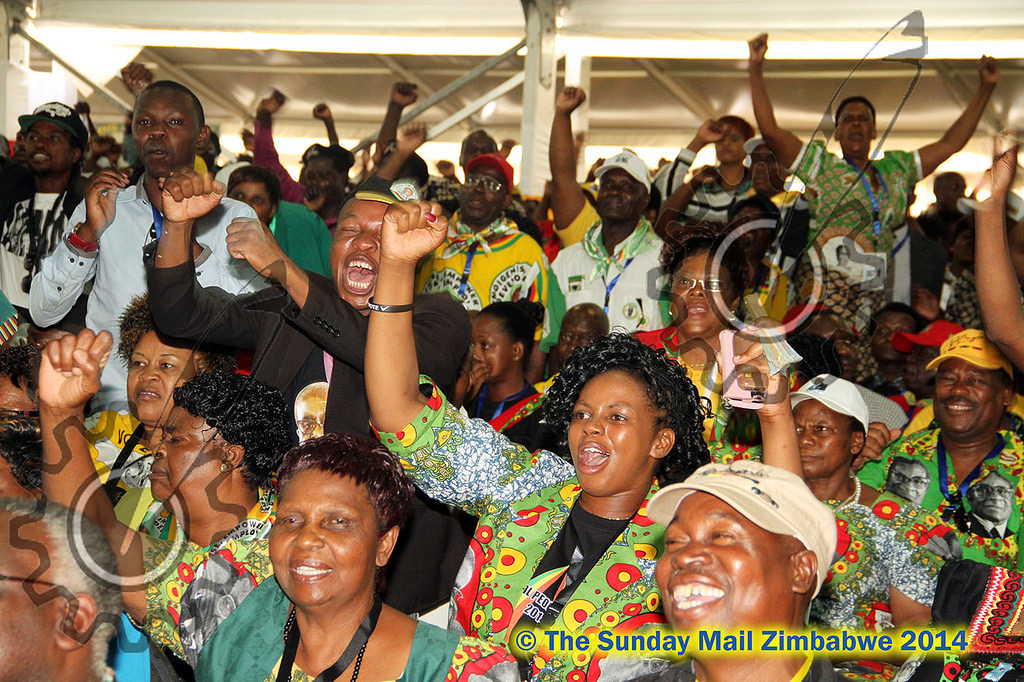
The Sunday Mail

Nduduzo Tshuma – Senior Reporter
The 6th Zanu-PF National People’s Congress yesterday ratified amendments to the ruling party’s constitution, with a new provisions stipulating that an official on whom a vote of no confidence is passed faces a five-year suspension or expulsion.
The amendments — presented by party secretary for legal affairs Cde Emmerson Mnangagwa —also established an elections commission to take over management of internal polls from the commissariat.
For the vote of no confidence changes to take effect, the petition must specify and detail incompetence or dereliction of duty, gross misconduct and disloyalty or treachery.
Any member or office holder on whom a vote of no confidence is passed by the appropriate organ on the grounds of incompetence or dereliction of duty shall not qualify to hold any other office in any organ of the party for three years.
Those facing allegations of gross misconduct face a five-year suspension, while those charged with disloyalty and treachery will be expelled.
The vote of no confidence should be confirmed by the party’s national disciplinary committee.
In addition, officials found guilty of corruption, dishonesty or and gross misconduct; or those convicted of any offence and are imprisoned for six months or more shall be liable to action by the appropriate organ.
The amendments also cut the Politburo to 26 members with 21 secretaries and five committee members.
The party’s First Secretary and President is empowered to create additional departments to the 21 listed in the constitution and make the appointments.
The Central Committee, according to the amended charter, will consist of 300 members, with the President being nominated by at least two provinces and elected nationally by party members.
The Central Committee will have “Two Vice Presidents and Second Secretaries, appointed in accordance with the Unity Accord by the President and First Secretary, for their skill, experience, probity, integrity and commitment of the party, its ideology, values, principles and policies;
“Ninety-four members who shall be allocated to the provinces in such a way and manner that each province shall have a proportionate quota or number having regard to the results of the preceding general elections and or as determined by the Central Committee from time to time.”
The provinces are expected to nominate candidates equitably to ensure each administrative district has one elected Central Committee member.
One hundred members shall also be allocated equally to provinces.
Further, the members shall include secretaries for the Youth and Women’s Leagues, 20 members from both wings nominated at national conferences and 10 nominated by the President. Fifty members shall be women allocated equitably to the country’s 10 provinces.
The Provincial Co-ordinating Committee shall be an electoral college and nominate the Central Committee, guided by rules and regulations determined by the Central Committee from time to time.
The elections commission, according to the amended constitution, will comprise nine people appointed by the First Secretary and President “for their skill, experience or competence and for their integrity, probity, loyalty and commitment to the party”.
Elections of any party organ shall be by secret ballot and the elections commission shall be responsible for compiling voters’ registers and conducting the polls.
The Women’s League national assembly was also expanded to cater for the women’s quota of 50 in the Central Committee.
Cde Mnangagwa said the amended constitution had an extended preamble to show the party’s history and ethos.
He said the previous charter had no vision and mission statement, unlike the amended version. The vision reads, “Forever to remain the mass revolutionary socialist party in the emancipation process of the people of Zimbabwe from all forms of oppression.”
The mission is “To maintain total ownership, control and equitable distribution of the means of production, natural resources and the defence of the national sovereignty, policies of indigenisation, empowerment and wealth creation so as to sustain the independence of Zimbabwe, and to remain forever masters of our own destiny”.



